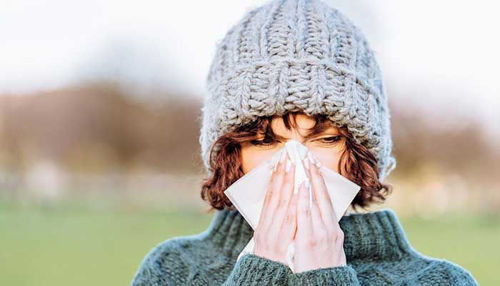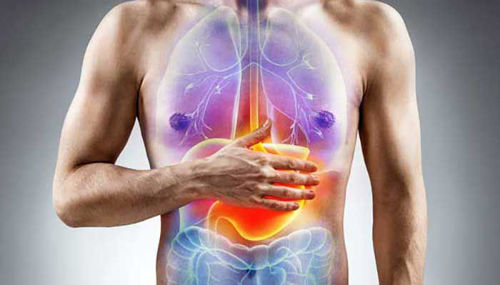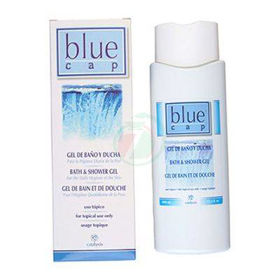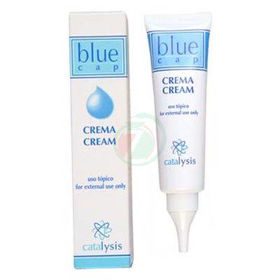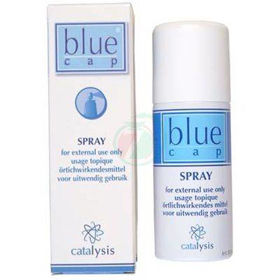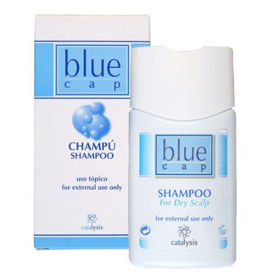Psoriasis or Psoriasis is a skin disease that causes an unpleasant rash on the skin's surface with itchy, scaly patches, most often on the knees, elbows, trunk, and scalp. Psoriasis is often a long-term (chronic), unfortunately, incurable disease. In addition, it can be painful, disturb sleep, and make it difficult to concentrate.
PSORIASIS: What is Psoriasis? | Images of Psoriasis | Causes of Psoriasis | Types of psoriasis | Diagnostics | Symptoms | Treatment | Conventional Medicine | Alternative Medicine | Treatment at home | Questions and Answers | Sources/references
Psoriasis is a disease of unknown etiology characterized by inflammation caused by immune system dysfunction. This skin condition causes itching and discomfort in areas of the skin. Plaque psoriasis is the most common type, causing thick, scaly patches of skin.
Unpredictable, unruly, and unsightly - Psoriasis is one of the most complex and persistent skin diseases. It is characterized by skin cells multiplying ten times faster than usual. Changes usually appear on the knees, elbows, and scalp. When the cells from the lower layers reach the surface and decay, their volume alone results in raised, white-scaly changes. Palmama and plantar Psoriasis, which only affect the palms and soles, are much more painful and often blister and discharge.
An overactive immune system causes excessive peeling of the skin. Normal skin cells grow back entirely and fall off within a month, but this process occurs in three or four days with Psoriasis. Instead of falling off, skin cells accumulate on the skin's surface.
Video content: Psoriasis - general overview
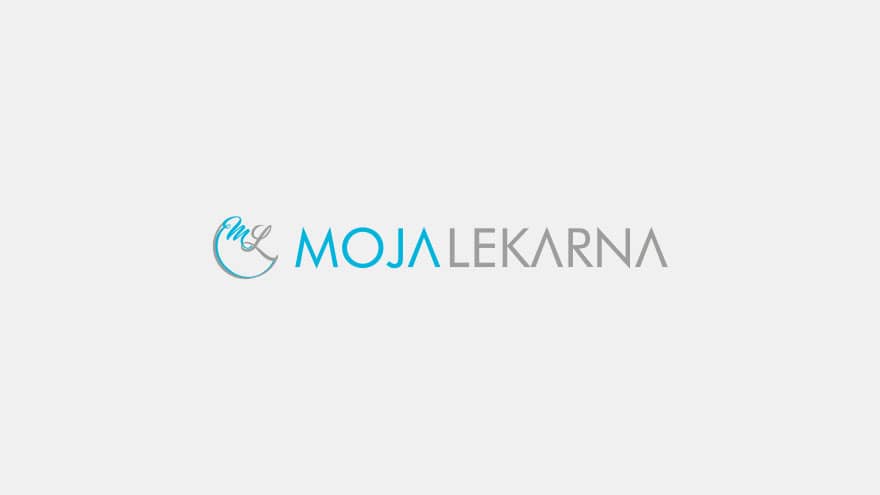
Some people report that psoriasis plaques itch, burn, and are uncomfortable. Plaques and scales can appear on any body part, although usually found on the elbows, knees, and scalp.
Although there is no cure for Psoriasis, proper care and treatment can help manage the symptoms. For example, your doctor may prescribe special creams or ointments for Psoriasis.

Symptoms often begin between the ages of 15 and 25 but can occur at any age. Men, women, and children of all races can get Psoriasis.
Psoriasis is not contagious, but it runs in families. Fair-skinned people between the ages of 10 and 40 are more susceptible, especially if they have a blood relative with the disorder. Psoriasis is extremely rare in people with dark skin. Outbreaks of the disease are triggered by the immune system and can also affect other body parts, especially the joints. In this case, the disease is called psoriatic arthritis. Psoriasis flare-ups are primarily benign but cause concern and embarrassment. With appropriate treatment, the symptoms disappear within a few weeks.
Images of Psoriasis, appearance

Picture: pictures of the different forms of Psoriasis.
Causes - what causes Psoriasis?
Psoriasis is caused by an overreactive immune system that causes skin inflammation. Many factors can trigger Psoriasis flare-ups, from emotional stress to a streptococcal infection. Also, up to 80% of patients who experience an exacerbation have recently experienced an emotional upheaval, e.g., a new job or the death of a loved one. Doctors believe that these external stresses trigger an inherited error in the formation of skin cells.
Your immune system thus causes skin swelling and inflammation, which shows up as a skin coating on the surface of your skin.
Psoriasis can be genetically determined, as biological parents can pass the disease on to their children.
Image: causes of psoriasis/psoriasis

The psoriasis outbreak is caused by contact with a trigger; it could be an allergy or irritation. In addition, different people experience different psoriasis flare-ups.
The following are typical causes of psoriasis flare-ups:
- emotional stress
- infection (streptococcal infection)
- skin injuries such as cuts, abrasions, or surgery
- certain medicines such as lithium and beta blockers
- changes in body temperature at the expense of the weather
Psoriasis is aggravated by skin damage, obesity, and certain medications - Dr., so can the analgesic ibuprofen and the antimalarial chloroquine. Often, the disease appears two to three weeks after infection, such as purulent angina. Alcohol consumption significantly worsens Psoriasis, as does a diet with a lot of protein and little fiber.
Species - we know several types of Psoriasis.
- Plaque psoriasis: Plaque psoriasis is the most common type of Psoriasis. About 80% to 90% of people with Psoriasis have Psoriasis in plaques.
- Inverse Psoriasis: This occurs in skin folds. It causes thin coatings without scales.
- Guttate Psoriasis: Guttate Psoriasis can occur after an inflammation of the throat caused by a streptococcal infection. It looks like small red, scaly spots in the shape of drops and often affects children and young adults.
- Pustular Psoriasis: Pustular Psoriasis has small, pus-filled bumps on the plaques.
Video content: Psoriasis - types, symptoms, causes, pathology

- Erythrodermic Psoriasis is a more severe type of Psoriasis that affects a large area (more than 90%) of the skin. It causes extensive discoloration and further peeling of the skin.
- Sebopsoriasis usually appears on the face and scalp as numerous bumps and plaques with oily yellow scales. This is a "cross" between Psoriasis and seborrheic dermatitis.
- Nail psoriasis causes skin discoloration, holes, and changes in the nails, hands, and feet.
A psoriasis rash can appear anywhere on your skin. It often appears on the elbows and knees, on the face and even inside the mouth, on the scalp, on the fingernails and toenails, on the genitals, on the lower back, and the palms and feet.
In most people, Psoriasis covers a small area of the skin. However, in severe cases, the plaques connect and cover a large part of the body.
Psoriatic arthritis
Psoriatic arthritis is a type of arthritis that causes joint pain and swelling. Like Psoriasis, this autoimmune condition causes the immune system to function abnormally and causes various unpleasant symptoms. About 1 in 3 people diagnosed with Psoriasis will also develop arthritis due to the inflammatory processes. Early treatment of psoriatic arthritis can reduce damage to your joints.
Psoriasis and eczema
Eczema and Psoriasis are two different skin diseases. However, both diseases cause similar symptoms, including itchy, rash, and discolored skin. Areas of thick, scaly skin are the result of psoriasis plaques. A dry, bumpy skin rash is often caused by eczema. In addition, eczema often causes itching that is worse than Psoriasis.
Psoriasis diagnosis and visit to the doctor
A dermatologist is often the best doctor to diagnose Psoriasis. However, it can be challenging to diagnose because Psoriasis can be confused with other skin conditions (such as eczema). In addition, the extent of skin damage, the severity of the condition (for example, the presence of multiple or painful skin patches), and location affect the treatment of Psoriasis (especially of the face).
Video content: Diagnosis of Psoriasis

Treatment options include applying lotions and ointments to the affected areas, using UV light, and taking medications (such as methotrexate) as directed by your doctor. Psoriasis is also often associated with severe medical conditions such as diabetes, heart disease, and depression. In addition, psoriatic arthritis is an inflammatory disease that affects some themselves with Psoriasis and their joints.
When to see a doctor?
Consult your doctor if:
- Psoriasis worsens when you stop taking high doses of corticosteroids to treat these or other medical conditions. Therefore, it would be best if you had a different treatment.
- The inflammation of the skin does not respond to any form of treatment; the doctor must determine whether the cause is not a more serious medical problem.
Symptoms of Psoriasis
In addition to skin plaques or a rash, you may have symptoms that include:
- itchy skin
- cracked and dry skin
- skin pains
- nails that are pitted, cracked, or chipping
- pain in the joints
Psoriasis CURE
Although Psoriasis is technically incurable, it responds well to most dermatitis treatments. In addition to the described conventional treatment, many doctors recognize and prescribe phototherapy.
CONVENTIONAL MEDICINE
The standard treatment many doctors recommend is to soak the affected skin in a warm bath for 10 to 15 minutes, then immediately apply an ointment, e.g., Vaseline, which moisturizes the skin. In addition, some doctors recommend ointments with salicylic acid, which accelerate exfoliation and thus smooths the skin. Steroid creams are also effective; however, since they can have harmful side effects, patients with Psoriasis, in particular, must be careful not to overuse them.
Treatment with Capsaicin, an active ingredient from cayenne pepper (Capsicum frutescens), can also help. You can buy it as an ointment to treat shingles. It inhibits the production of an inflammatory chemical substance in the body found in the skin in Psoriasis. It also prevents the growth of blood vessels in the affected areas, thereby stopping abnormal tissue thickening. However, Capsaicin can cause severe burns and damage the skin, so use it only under medical supervision.
Video content: treatment of Psoriasis - 3 best drugs

An ointment containing calcitriol, a compound related to vitamin D, is as effective as hydrocortisone creams in treating Psoriasis but has fewer side effects. Coal tar ointments and shampoos also relieve symptoms, but psoriasis patients are susceptible to its side effects — especially folliculitis, a pimple-like rash affecting hair follicles. Some research also shows that long-term use of coal tar products increases the risk of skin cancer.
Treatment with anthralin is used only in severe cases of Psoriasis. The therapist carefully applies the anthralin ointment only to the skin changes and removes it after 30 to 60 minutes. After that, all white scales should disappear, and new, normal skin will appear.
Several types of treatment can relieve symptoms. Common treatments for Psoriasis include:
- steroid creams
- moisturizers for dry skin
- medicine to slow down the production of skin cells (anthralin)
- medicated lotions or shampoos
- vitamin D3 ointment
- vitamin A or creams with retinoids
Small patches of skin where the rash is present may require only creams or ointments to heal. You will need more treatments if your rash covers a larger area or if you also have joint discomfort. The presence of discomfort in the joints may indicate arthritis.
What if the usual psoriasis treatments don't work?
If your psoriasis symptoms do not improve after treatment, or if you have large areas affected (10% of your skin or more), your doctor may recommend the following treatments:
- Light therapy: LED lights at specific wavelengths can reduce skin inflammation and help slow the production of skin cells.
Video content: is light therapy the right way?

- PUVA: This treatment combines a drug called psoralen with exposure to a particular form of ultraviolet light.
- Retinoids: These drugs, related to vitamin A, can help with psoriasis symptoms, but they can cause side effects, including congenital disabilities.
- Immune therapies: Newer immune therapy drugs (biologics and small molecule inhibitors) block your body's immune system so it cannot cause an autoimmune reaction.
- Methotrexate: Providers recommend this medication for severe cases of Psoriasis. It can cause liver disease. If you take it, your provider will monitor your progress with blood tests. You may need regular liver biopsies to check the health of your liver.
- Cyclosporin: This drug can help with severe Psoriasis but can cause high blood pressure and kidney damage.
An outbreak of Psoriasis can last from a few weeks to several months. With some medications, your healthcare provider can help your skin heal faster. Unfortunately, when your symptoms are gone, the Psoriasis is gone too. This means you may experience a new round of symptoms later.
Your remission can vary from a few months to a few years. If you find that specific triggers make your symptoms worse, avoiding those triggers will prolong your period of remission.
WHERE DOES PSORIASIS APPEAR?
The thick, dry, scaly skin lesions of Psoriasis can vary widely in size and can appear almost anywhere on the body. Most often, Psoriasis affects the scalp, elbows, and knees, shown in pink in the picture.
Image: the display of Psoriasis on the knees

Anthralin must be applied by an experienced caregiver, as it can otherwise irritate the surrounding skin and leave stains that do not disappear for several weeks. In addition, many doctors advise and prescribe phototherapy for stubborn Psoriasis, which is challenging to treat.
ALTERNATIVE MODES
If conventional treatment methods do not help you, consult your doctor about the following alternative methods.
AROMATHERAPY
As an alternative to coal tar shampoos for scalp psoriasis, mix four drops of virgin juniper essential oil and two drops of common juniper (Juniperus communis) or lemon in 1 tablespoon of almond or olive oil.
Video content: 12 effective essential oils

Apply the mixture to the scalp and leave it overnight under a swimming cap. In the morning, shampoo thoroughly and rinse with water. Repeat three times a week until symptoms disappear. Some people are sensitive to essential oils - soak a drop of oil for 30 minutes before applying it to the skin to see if it causes any side effects.
CLIMATE TREATMENT
Climatic treatment assumes that certain climatic conditions help or cure certain diseases. Spending as much time as possible in the sun is beneficial for Psoriasis. Exceptional seaside resorts offer accommodation in
WARNING
Many psoriasis patients are treated with corticosteroids to avoid coal tar treatment's dirtiness and possible side effects. However, steroid medications can also have severe and long-lasting side effects. Due to excessive or prolonged use of steroid ointments, the skin becomes thinner and white spots, acne, and permanent stretch marks appear. If they are used excessively around the eyes, they can rarely cause glaucoma. Oral corticosteroid therapy may cause Psoriasis to flare up again after discontinuation. Suppose Psoriasis refuses to be cured with conventional medicine. In that case, we must consider that the sudden onset of Psoriasis may be a sign of infection with HIV (human immunodeficiency virus), the causative agent of AIDS.
Treatment is suitable for patients with Psoriasis and other skin diseases. The combination of sunlight, relaxation, and mineral baths has a healing effect on many patients.
HERBS
Symptoms of Psoriasis should be reduced by burdock root (Arctium lappa), dandelion root (Taraxacum officinale), and mahonia (Mahonia aquifolium). Put one tablespoon of one of these herbs in a cup of boiling water, let it boil slowly for 10 minutes, strain, and drink hot, up to three cups daily. You can also take 1 1/2 teaspoon of liquid burdock or dandelion root extract daily.
Oenothera biennis oil soothes itching associated with Psoriasis. Some doctors believe it is as effective as corticosteroids but have fewer side effects. However, people with liver disease or high cholesterol can only take it under medical supervision. In addition, pregnant women should not take it because it affects the concentration of hormones in their bodies. The recommended dose is two 500-milligram capsules daily, which is quite expensive; borage oil and linseed oil are cheaper substitutes.
Image: brightness appearance

Mix equal parts of burdock tinctures, Scutellaria lateriflora, sorrel (Rumex crispus), and calcium spp.; take 1 or 2 teaspoons daily. Or soak one tablespoon of fresh nettles (Urtica dioica) and fresh nettles in a cup of boiling water for 10 minutes, strain, and drink two to three cups daily.
A rinse from dried rosemary (Rosmarinus officinalis) and sage (Salvia officinalis) can substitute coal tar shampoos. Pour half a liter of boiling water over 30 g of each herb and let it soak overnight. Strain and use daily as a rinse after shampooing.
HOMEOPATHY
Do not attempt to self-select a homeopathic remedy for a chronic, systemic disease such as Psoriasis. A homeopath considers many variables, MD. Site of inflammation, information about diseases in the family, and the patient's response to stress. Medicines recommended by homeopaths for Psoriasis are sulphur, graphites, lycopodium, and arsenic-cum album.
PHOTOTHERAPY
Like other chronic skin diseases, Psoriasis responds well to phototherapy or light therapy. However, patients are exposed to ultraviolet radiation for some time, sometimes before they are given psoralen. Therefore, the treatment is repeated several times a week, up to eight times a month. Many doctors and patients report positive results, but the treatment can have serious short- and long-term side effects.
Video content: a tour of the phototherapy department

Psoralen is not recommended for pregnant women due to possible harmful effects on the fetus. Phototherapy is unsuitable for every patient with Psoriasis, but it is an option worth discussing with a doctor.
MEDICINE OF SPIRIT AND BODY
The skin, the body's largest organ, often reflects turbulent events. It is, therefore, no wonder that many people with Psoriasis suffer (or have suffered) from low self-esteem, severe anxiety, and stress-related problems. Mind-body medicine techniques help patients by addressing illness's psychological causes and consequences. Hypnosis, guided performances, other relaxation techniques, biofeedback, and psychotherapy are particularly effective.
Teach yourself to relax by trying different methods, from a brisk half-hour walk every day to self-hypnosis, where you direct your attention to the exclusion of unpleasant stimuli. If you think internal stress contributes to the disease, incorporate relaxation techniques into your daily activities.
NUTRITION
Fish oil high in eicosapentaenoic acid (EPA) from fish such as mackerel, sardines, and salmon reduces inflammation and relieves itching. To eat enough EPA, you would need to eat a kilogram of fish daily, so instead, take 1,000 milligrams of fish oil capsules containing EPA four times a day. You take
PSORIATIC ARTHRITIS
In its course, which is unique among skin diseases, Psoriasis can cause inflammation of the joints. The complication is called psoriatic arthritis. It mainly affects the joints of the fingers and toes. It affects about 5% of patients with Psoriasis. Inflammation of the joints occurs immediately before or immediately after the onset of skin changes. The symptoms are similar to rheumatoid arthritis, but tests for this disease are negative.
Video content: psoriatic arthritis in words and pictures

Doctors treat skin problems first because joint inflammation usually heals when the skin inflammation subsides.
Psoriatic arthritis responds well to acetylsalicylic acid and nonsteroidal anti-inflammatory drugs. Patients should avoid high doses of corticosteroids used in other forms of arthritis. As with other skin problems, changes in Psoriasis get worse if you reduce the dose of steroids or stop taking them.
It can also be one tablespoon of fish oil daily, which also contains a lot of vitamin A.
Vitamin A is very important for the growth and renewal of the skin. When a psoriasis flare occurs, take massive doses of vitamin A for a month - even up to 100,000 IU per day - under the supervision of a doctor, then again take maintenance doses - no more than 50,000 IU per day. Daily doses of vitamin D from 400 to 1000 IU accelerate healing. Ask your doctor to monitor your progress to avoid overdosing, especially with fat-soluble vitamins. Before giving children mega supplements, always ask about the permitted doses.
Vitamins of the B complex, which contain vitamin B5 and vitamin B1, promote skin health. A dose of 50 mg three times a day is recommended for Psoriasis. Damage to the skin on the scalp can be improved by massaging an ointment with vitamin E into the scalp two or three times a week.
Some research has shown that overeating citrated fruit worsens Psoriasis and that psoriasis patients, like eczema patients, cannot metabolize fatty acids. So to prevent outbreaks, eat a lot of fish, raw vegetables, and as little fat and sour fruit as possible.
HEALTH AT HOME
- Prepare a warm bath for mild forms of Psoriasis, then lubricate the changes with an ointment that moisturizes the skin and calms the inflammation. For example, use plain petroleum jelly, vegetable oil, an over-the-counter corticosteroid ointment, or salicylic acid. Check that none of these ointments contain additives, preservatives, or fragrances.
- For scalp psoriasis, wash your hair with a coal tar shampoo or a mixture of Virginia juniper and common juniper or lemon oils. Rinsing with a solution of rosemary and sage can also help.
Video content: 3 ways to treat Psoriasis at home.

- Sunbathe. Expose the inflamed skin to the sun, and apply a protective cream to the rest of the body. Please do not overdo it with sunbathing.
- Start with regular exercise or relaxation. Set aside at least 15 minutes for stress-reducing activities for stress-reducing activities for stress-reducing activities four or five days a week.
Questions and Answers
What are the three symptoms of Psoriasis?
- Rashes or red spots, inflammation of the skin, often covered with loose silver-colored scales;
- Itchy, painful skin that may even crack or bleed.
- Small areas of bleeding where the affected skin is scratched[1].
Does Psoriasis disappear over time?
Psoriasis, an unpleasantly itchy skin disease, can come and go. It is associated with an overactive immune response and is not contagious. However, talk to your healthcare provider if you notice skin changes that don't go away. There is no cure for Psoriasis, but treating Psoriasis can improve symptoms[2].
How can you get rid of Psoriasis?
Five ways to remove psoriasis scales:
- Use of acid for peeling. These include salicylic acid, glycolic acid, lactic acid, and urea, each of which can help gently remove flakes without damaging the skin
- soaking in water
- use of moisturizer and oil
- use of coal tar in cosmetic products
- use of keratolytic shampoo[3].
Sources and references
Source: Family Health Guide. Conventional and alternative treatment, Dr. Jajo Lajovic, Publishing House Mladinska knjiga
1. 5 Signs and Symptoms of Psoriasis - https://www.webmd.com
2. Psoriasis - https://my.clevelandclinic.org
3. How to Safely Remove Psoriasis Scales - https://www.everydayhealth.com





